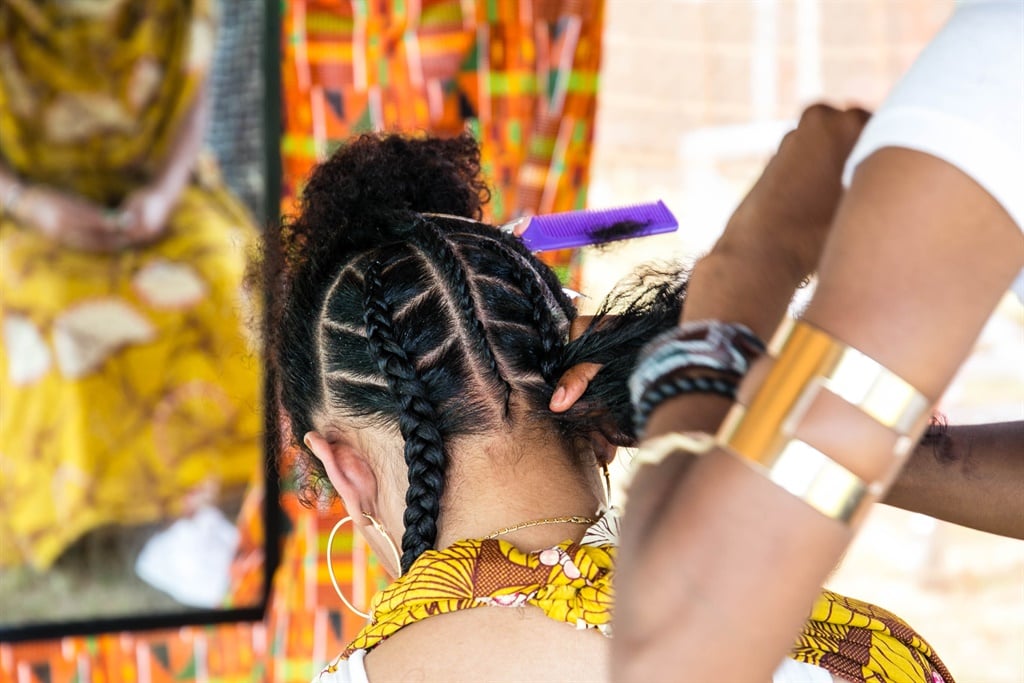
Professor Ncoza Dlova, the University of KwaZulu-Natal's Dean of Clinical Medicine, and Head of Dermatology with her years of research and having been recognised with multiple accolades brings a key hair transplant hair restoration clinic to South Africa for people with alopecia.
Prof Ncoza is getting international acclaim for her work in helping discover a gene mutation that results in permanent hair loss among black women.
Central Centrifugal Cicatricial Alopecia (CCCA) is a condition that largely affects women of African descent. CCCA has been reported since the late 1960s and was previously referred to as ‘hot comb alopecia’ because it was thought to be related to the use of hot combs for straightening hair.
The new study Prof Ncoza has been involved in together with her international colleagues has shown that mutations in the PADI3 gene are associated with CCCA.
“Now we know that [CCCA] is caused by mutation of a certain type of gene, the gene is supposed to code the formation of the hair shaft – meaning there defect in the PADI3 gene causes alteration in the final hair protein defect. What caused that defect, we don’t know,” says Prof Ncoza.
While the scientific cause of the mutation is unknown and a cure is not yet available, this study is revolutionary for medicine.
She says in the study they also found that where women who have CCCA kept their hair natural, CCCA had a slow progression and was not so severe.
CCCA is known to be aggravated by trauma-causing treatments that are unhealthy for the hair. This includes chemical treatments and excessive tugging and pulling of the hair that is seen in people who have very tight braids, weaves, extensions and chemically processed hair.
READ MORE: Sho Madjozi on all things hair and braids
“When we pull the hair, with or without braids as well as attaching weaves, we cause mechanical trauma which leads to hair inflammation which after repeated episodes leads to permanent hair loss.
“Traction alopecia or “injibhabha” is preventable, it is therefore prudent that we educate our hairstylists not to exert too much tension when braiding hair. The signs of tight hair styles include, pain after styling, headache slanting eyes, pimples on the edges of braids or hairline, tenting of the skin.
“The at risk age is 18 years, and it is therefore important to educate this age group to minimise or avoid hair loss which may happen later around 25-50 years old. Since the popularity and use of weaves, hair extensions in the last 10-15 years we have seen an increased number of patients presenting with hair loss at the dermatology clinics,” says Prof Ncoza.
“What we’re saying to the public is that they should avoid chemicals, hair extensions, and avoid braiding relaxed hair as this causes a double damage to the hair … If you have to braid your hair, it is fine as long as there is not painful, no pulling, there must be no red pimples on the scalp. You must also try and change the style, different looks every two months or three months,” she adds.
What is less reported is that Prof Ncoza is also bringing transformative treatment to South Africa that has never been done before – hair transplants for those who suffered hair loss due to alopecia.
The hair transplant procedure, is ideal for people who have traction alopecia, and it involves removing hair follicles one by one from the area with thick hair to the bald area. The area heals with small dots, which your existing hair will cover. Not everyone is a candidate for a hair transplant, but your doctor will consult with you and assess your condition.
READ MORE: Five things to remember before you go for your next protective style
Prof Ncoza says this procedure could be possible for people with CCCA as well, but the likelihood of success will be determined by availability of hair, the size of the affected area and other contributing factors.
She says CCCA has to be diagnosed by a medical professional, such as a dermatologist, and encourages women who have hair loss or have family members who have been diagnosed with alopecia to see a dermatologist.
Prof Ncoza adds that it’s best to see a doctor early so it’s possible to stop the disease through treatment because, unfortunately, hair that is already lost cannot grow back unless one is a candidate for hair transplant back. Alopecia treatment include creams, antibiotics and other anti-inflammatory medication, as well as injections.
READ MORE: "I love my natural hair but my mom hates it – and it’s racist"
“We want to prevent traction alopecia, because it is a preventable disease,” says Prof Ncoza.
Because there are steps that can be taken to decrease the prevalence of alopecia, Prof Ncoza appeals to parents to teach healthy hair care practices to their children and to avoid using hair extensions, weaves, tight braids and dreads on children. She says children should be encouraged to have short hair, as it’s economical and easy to manage.
Prof Ncoza continues to spread the word about hair and skin health through her research and advocating for more training of hair stylists in formal and informal settings on hair disorders to ensure appropriate diagnosis and early referral for treatment.
Sign up to W24’s newsletters so you don't miss out on any of our hot stories and giveaways.




 Publications
Publications
 Partners
Partners














